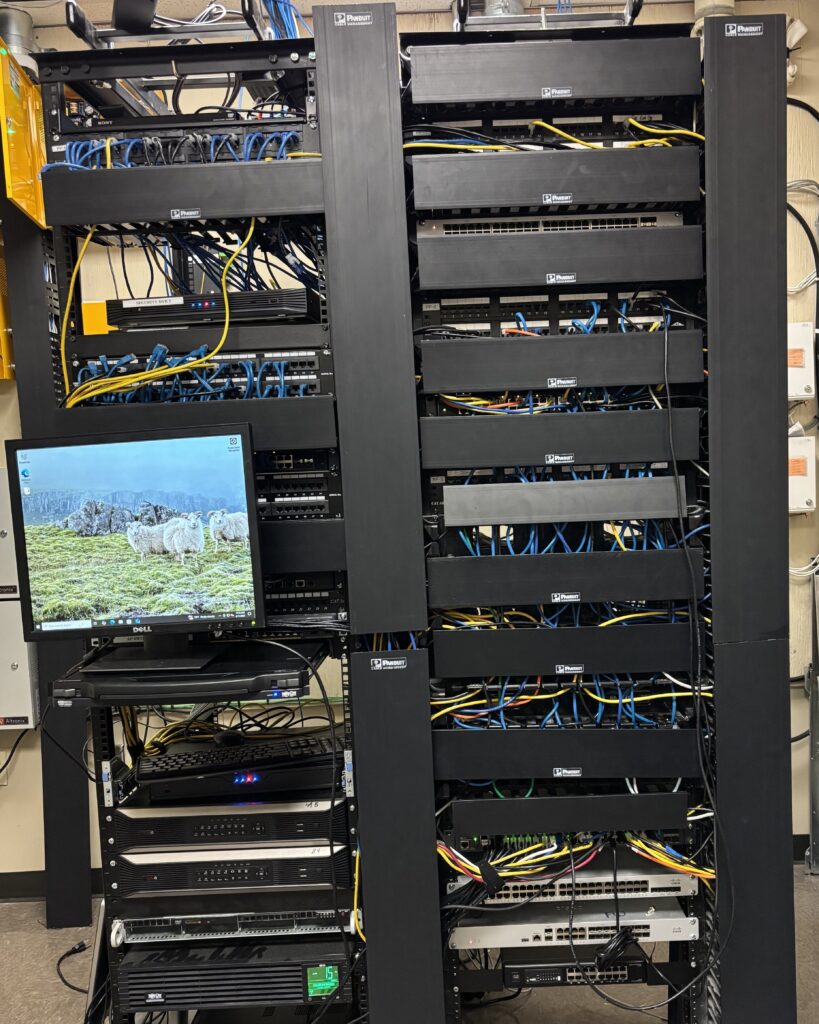Information Technology
Synergy Magnet Technology Program
Synergy’s Technology Pathway is designed to equip students with the skills and credentials needed to succeed in today’s competitive tech industry. Through hands-on learning and real-world applications, students have the opportunity to earn industry-recognized certifications in high-demand fields such as Cybersecurity, UX/UI Design, and Game Development. The pathway emphasizes both technical proficiency and creative problem-solving, ensuring students are well-prepared for internships, further education, or immediate entry into the workforce. By integrating modern tools, current industry standards, and mentorship from experienced professionals, Synergy empowers students to become confident, capable, and career-ready innovators.
Introduction to Cyber Security
(Fundamental: Ethical Hacking Certification/ Security Compliance Certification)
Students participate in real-world simulations that highlight common system vulnerabilities and demonstrate effective mitigation strategies. These hands-on exercises align with industry standards for introductory computer security, helping students build a strong foundation in cybersecurity principles. Through guided labs and threat analysis, students learn to identify risks, understand attack methods, and apply defense techniques such as encryption, firewalls, and access control.
- Identify common cybersecurity vulnerabilities
- Apply basic mitigation techniques (encryption, firewalls, access control)
- Understand real-world cyber threats and how to respond to them
UX/UI Design
(HTML & CSS Fundamental Certification)
A UX/UI Design class equips students with the skills to create user-friendly and visually appealing digital experiences. Students learn to design intuitive interfaces, improve user interaction, and understand user behavior. Through hands-on projects, they also gain practical experience with HTML and CSS, building responsive web layouts and bringing their designs to life. This foundation prepares students for careers in web design, app development, and digital media.
- Learn to design user-friendly and visually appealing interfaces
- Understand user behavior and improve digital experiences
- Gain hands-on experience with HTML and CSS for real-world web design
- Build a strong foundation for careers in web design, app development, and digital media
Game Development
(Fundamental Full-stack Game Development Certification)
In a Game Development class, students learn how to design, code, and build their own video games from the ground up. They explore the fundamentals of game mechanics, storytelling, and interactive design while using industry tools and programming languages. The class encourages creativity, problem-solving, and technical skill development.
- Design and develop their own playable games
- Learn coding basics using game engines and scripting languages
- Understand game mechanics, level design, and storytelling
- Build critical thinking and creative problem-solving skills









Programming Foundations
Learning the foundations of Python programming offers students a strong introduction to one of the most widely used and beginner-friendly programming languages in the world. Through this course, students gain essential skills in problem-solving, logical thinking, and software development practices that serve as a gateway to more advanced fields such as web development, data science, artificial intelligence, and cybersecurity.
What the Student Gains:
- A clear understanding of core programming concepts like variables, loops, functions, and conditionals.
- Hands-on experience with real-world coding problems to build practical confidence.
- Familiarity with debugging, code readability, and best practices in programming.
- Preparation for the Python Programming Foundations Certification, a credential that validates their knowledge and can enhance academic and career opportunities.
This foundational knowledge sets the stage for future learning in technology and opens doors to more advanced coding certifications and tech-related paths.
